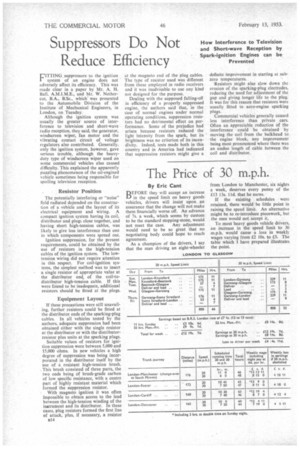The Price of 30 m.p.h.
Page 48

If you've noticed an error in this article please click here to report it so we can fix it.
By Eric Cant
BEFORE they will accept an increase in the speed limit on heavy goods vehicles, drivers will insist upon an assurance that the change will not make them financially worse off. An advance of 7s. a week, which seems by custom to be the standard stepping-stone, would
not meet the case. Any adjustment would need to be so great that no negotiating body could hope to reach agreement. As a champion of the drivers, 1 say that the man driving an eight-wheeler from London to Manchester, six nights a week, deserves every penny of the £13 13s. lid, that he earns.
If the existing schedules were retained, there would be little point in raising the speed limit. An alternative might be to re-introduce piecework, but the men would not accept it, To most heavy goods vehicle drivers, an increase in the speed limit to 30 m.p.h. would cause a loss in weekly wages varying from £2 10s. to £5. The table which I have prepared illustrates the point.




















































































